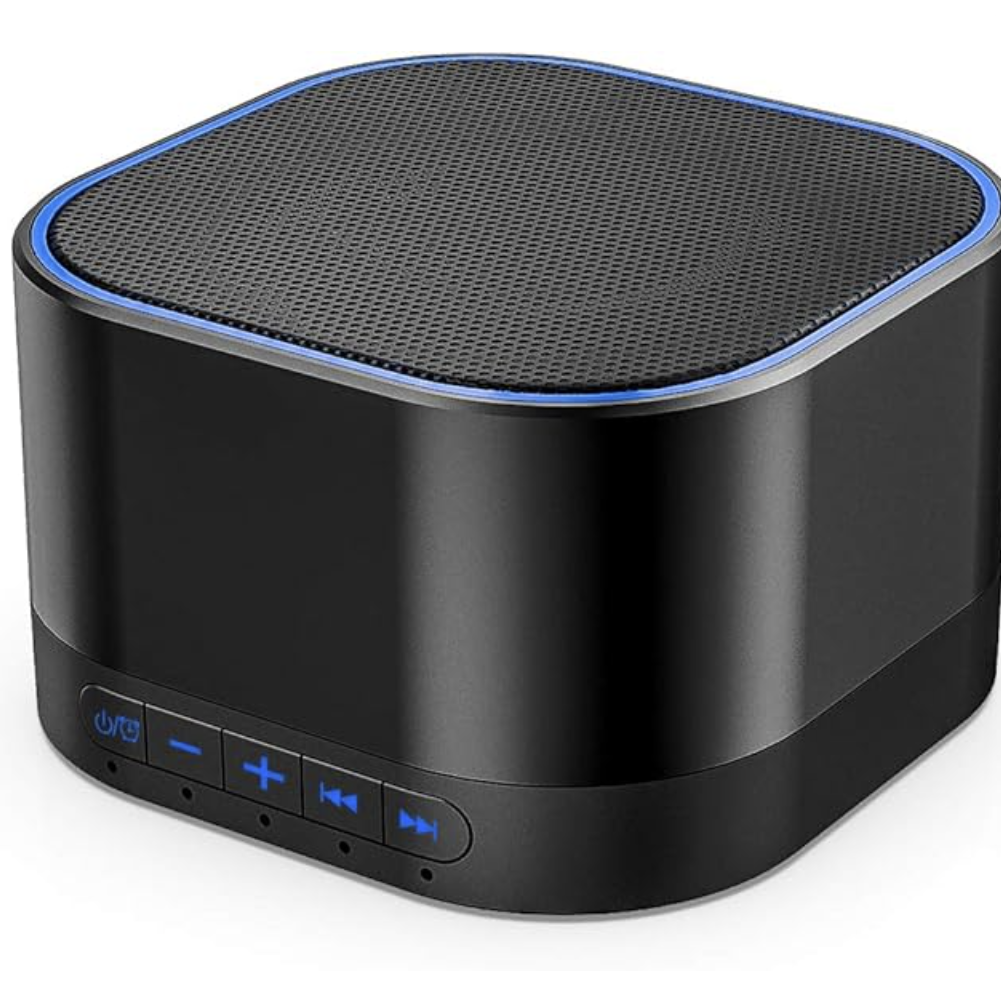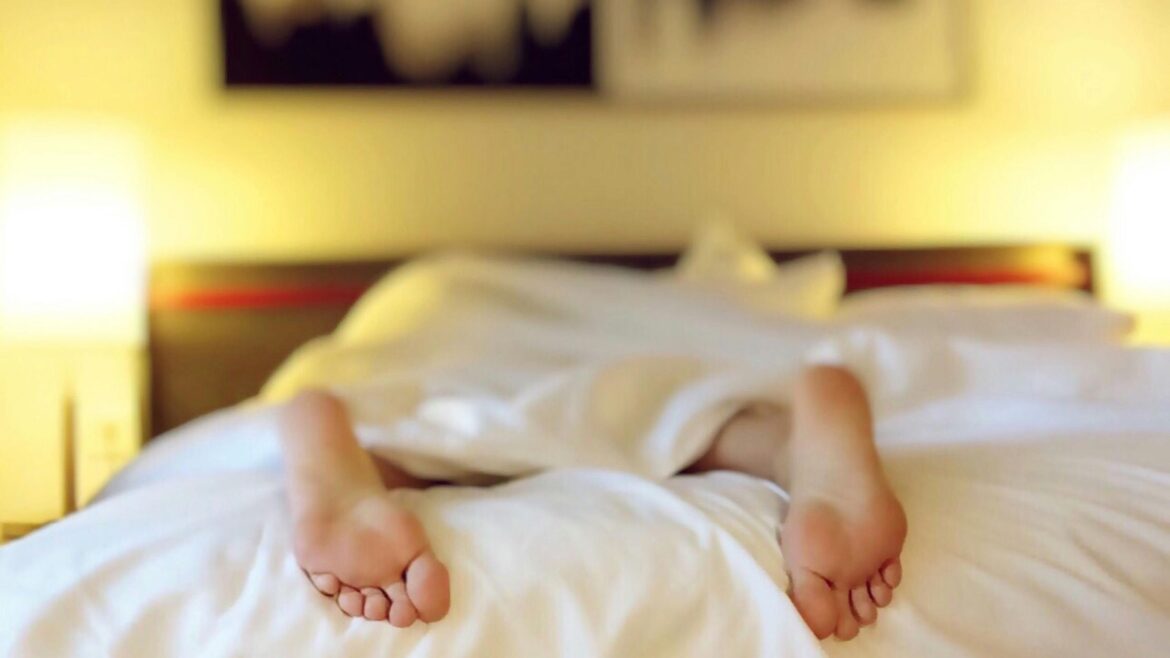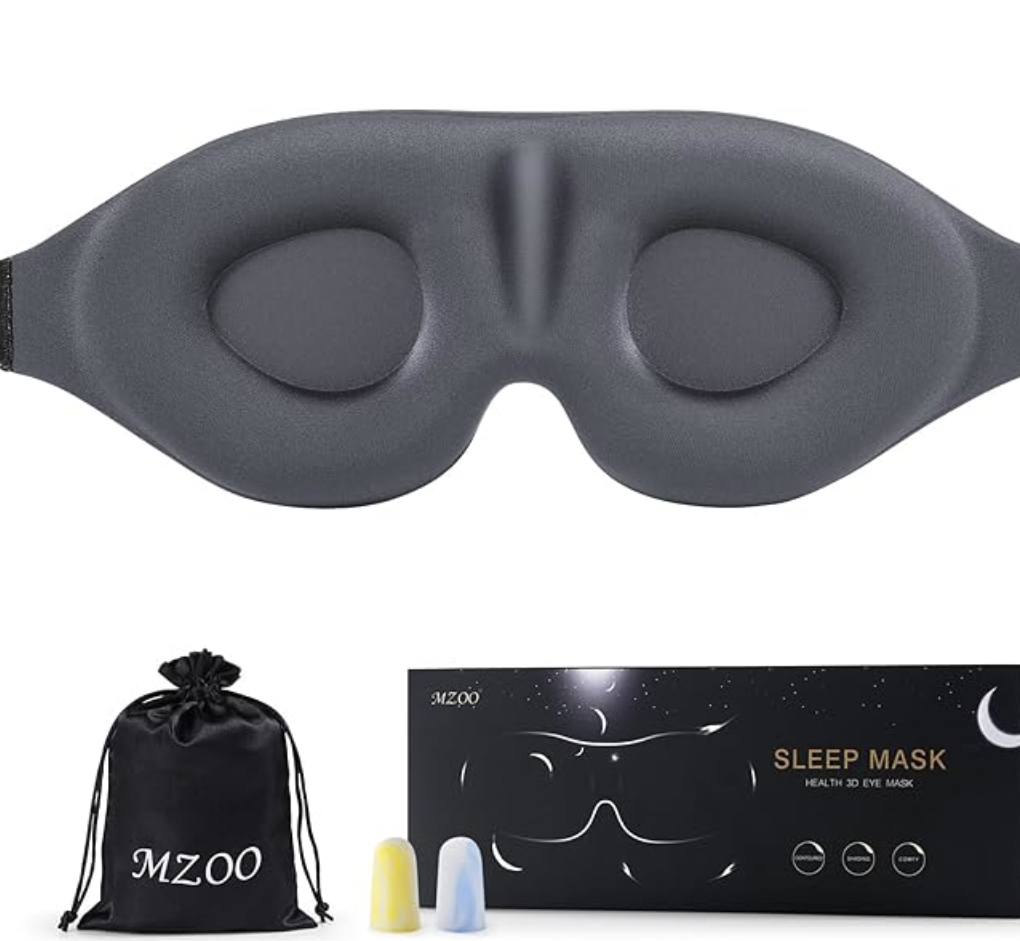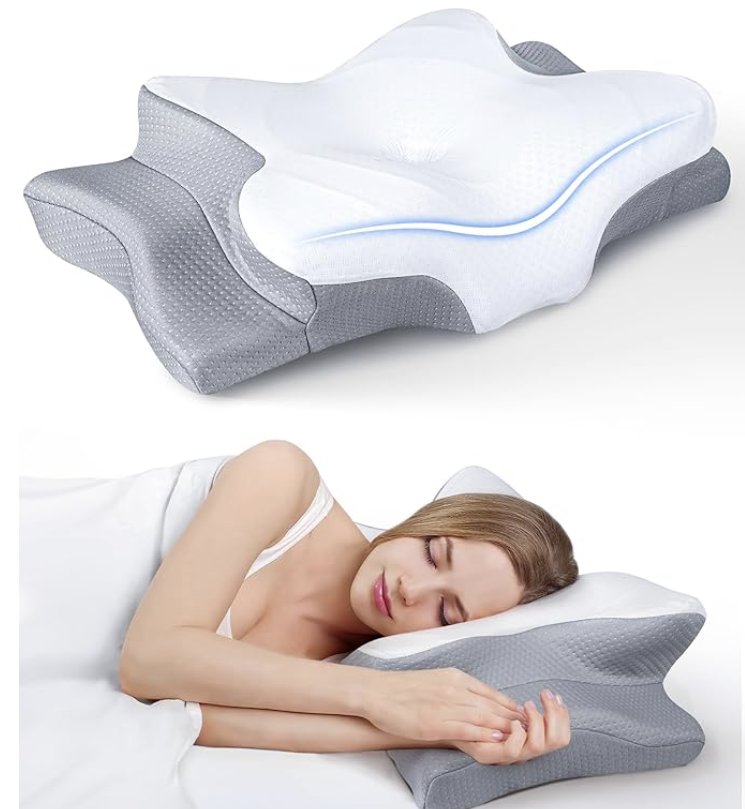Most of us are exhausted.
Between endless screen time, late-night scrolling, stress, and poor sleep habits, getting real, restorative rest feels more like a dream than a nightly reality. But what if better sleep wasn’t about doing more, but simply doing the right things?
In this guide, we’ll cover 7 science-backed ways to improve your sleep — including top-rated products that can make falling (and staying) asleep way easier.
1. Zero-Pressure Eye Mask
Light is one of the biggest enemies of deep sleep. Even small amounts of artificial light — like streetlights, phone glows, or early morning sun — can disrupt melatonin production and interfere with your circadian rhythm.
The MZOO Sleep Eye Mask is a top pick for a reason.
With over 93,000 reviews and a 4.6-star rating, users rave about its comfort and light-blocking power.
It’s designed to avoid pressure on your eyes, making it ideal for side sleepers and frequent travelers.
2. Upgrade Your Pillow Game
Neck pain, improper alignment, or just the wrong pillow can wreck your chances of a restful night.
The Ultra Pain Relief Cooling Pillow offers orthopedic support while keeping you cool.
With memory foam construction and a contour shape, it promotes better posture, reduces pain, and supports deep REM sleep.
It’s especially helpful if you sleep on your side or back.
3. Use a White Noise Machine to Calm Your Brain
Our brains are hardwired to respond to noise — even at night. Whether it’s a dog barking, cars outside, or a snoring partner, inconsistent sound can jolt you out of precious sleep cycles.

The Magicteam White Noise Machine is a best seller with 20 natural sound options, a memory function, and 32 volume levels.
Over 60,000 customers have rated it 4.5 stars for helping them fall asleep faster and stay asleep longer. Plus, it works for adults, babies, and even pets.
4. Stick to a Consistent Sleep Schedule
It may sound simple, but going to bed and waking up at the same time every day helps reset your internal clock. According to the Sleep Foundation, irregular sleep schedules can lead to chronic fatigue and insomnia.
Try winding down 30 minutes before bed each night with a calming routine — dim lights, no screens, and maybe a warm herbal tea.
5. Avoid Blue Light Before Bed
Blue light from phones, tablets, and laptops tricks your brain into thinking it’s daytime. That suppresses melatonin and keeps you wired. Use “night mode” on devices, try blue-light-blocking glasses, or better yet — unplug 1 hour before sleep.
Studies show that cutting screen time before bed improves sleep quality and helps you fall asleep faster.
6. Manage Stress and Cortisol Levels
Overthinking at night? Racing thoughts? That’s your cortisol (stress hormone) spiking — and it’s a major sleep saboteur. Journaling, meditation, or even adaptogenic herbs like Ashwagandha can help calm the mind.
Try guided breathing apps or a light yoga session to relax your nervous system naturally.
7. Keep Your Bedroom Cool, Dark & Quiet
Experts recommend keeping your bedroom between 60–67°F (15–19°C) for optimal sleep. Add blackout curtains, a fan, and eliminate distractions. Your room should feel like a sleep sanctuary — no clutter, no chaos, just calm.
Better Sleep = A Better Life
Sleep isn’t just about rest — it’s about recovery, memory, energy, and even your immune system. A few smart tweaks to your sleep environment, paired with the right tools (like a cooling pillow, eye mask, and white noise machine), can transform how you feel every day.
So instead of just surviving on coffee, let’s start thriving with sleep.



Leave a Reply